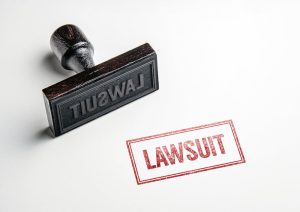Discovery is a formal process by which the parties in a lawsuit disclose all facts relevant to the dispute before trial. During discovery, the parties divulge their evidence and the witnesses they plan on calling at trial. The purpose of the discovery process is to prevent either party from surprising the other party at trial with some previously undiscovered information.
Courts liberally interpret what parties can seek through discovery. Parties to a civil action can ask for almost any material “reasonably calculated to lead to the discovery of admissible evidence.” However, one limitation is that some discovery materials may be privileged and not subject to disclosure.
What Happens in the Discovery Phase of a Lawsuit?
 After a plaintiff files a lawsuit, the court may direct the attorneys to appear before it for a conference on discovery. The parties may also ask the court for a discovery conference.
After a plaintiff files a lawsuit, the court may direct the attorneys to appear before it for a conference on discovery. The parties may also ask the court for a discovery conference.
Following the discovery conference, the court will enter an order:
- Identifying the issues for discovery purposes,
- Establishing a plan and schedule for discovery,
- Setting limitations on discovery, if any, and
- Determining other matters, including those related to the proper management of discovery.
Parties may obtain discovery by one or more of the following methods:
Depositions upon oral examination or written questions – These involve examining parties and witnesses under oath in the presence of a court reporter and the parties’ attorneys.
Written interrogatories – These are questions one party poses to the opposing party in writing. A party may ask the other party to identify all the evidence supporting any claims or defenses they plan to raise during litigation.
Production of documents or things or permission to enter upon land or other property for inspection and other purposes – One party may ask the other to provide documents, records, or other tangible evidence, including electronically stored information. This can lead to a voluminous amount of information that takes time to classify.
Requests for admission – These allow a party to ask the other to admit or deny questions. For example, a party may request the other to admit facts related to the incident that would tend to prove liability. These requests allow the parties to narrow the issues by identifying positions on which the parties agree.
How Long Is the Discovery Phase in a Lawsuit?
Discovery involves the exchange of information. It works by one party using any permitted discovery tool (such as interrogatories) to request information from any other party in the lawsuit. Rules of procedure govern each discovery tool, regulating the time within which a party must comply with a discovery request. Defined notice periods and request timeframes can add considerable time to the discovery phase of a case.
For example, a party has 30 days to respond to a request for interrogatories or a request for production. Once a party fulfills these requests, the attorney for the receiving party must carefully review and analyze the responses. Analyzing evidence obtained through discovery may compel your attorney to employ other discovery methods, such as a deposition, which can add additional time to the discovery process.
More complex lawsuits may require the parties to collect and analyze substantial evidence or depose numerous witnesses. In this case, the discovery process may last several months or even longer than a year.
Delays can occur because the parties experience conflicts in scheduling depositions that fit into the schedules of attorneys and witnesses. Finding a date suitable for everyone’s schedule can take several weeks, if not a few months. Deposing witnesses may also extend the discovery phase of a lawsuit if attorneys and witnesses try to delay evidence of liability and avoid the deposition.
What Happens After the Discovery Phase in a Lawsuit?
 At the end of the discovery process, both parties should have a reasonably good idea of the strength of their opponent’s case as well as their own. A weakness in one party’s position may encourage it to try negotiating a settlement to avoid going to trial. Alternatively, both parties may believe strongly in the merits of their claims and defenses, creating the likelihood that the case will proceed to trial.
At the end of the discovery process, both parties should have a reasonably good idea of the strength of their opponent’s case as well as their own. A weakness in one party’s position may encourage it to try negotiating a settlement to avoid going to trial. Alternatively, both parties may believe strongly in the merits of their claims and defenses, creating the likelihood that the case will proceed to trial.
Contact an Experienced Washington Personal Injury Lawyer
If you have sustained injuries due to another person’s carelessness, the Washington injury lawyers at Tamaki Law can help you seek compensation for your losses. Our attorneys provide skilled and capable legal services to help you obtain the justice you deserve. Contact Tamaki Law today. Call us at (800) 801-9564 or contact us online to schedule a free consultation.
Related Posts:
How Long Do Personal Injury Cases Take to Settle
